Story4 Climate change

Toward a zero-carbon society
The Yakult Group Environmental Vision set a goal of net-zero greenhouse gas emissions by 2050. In order to achieve this, we are promoting efforts to reduce greenhouse gas emissions throughout our entire value chain.
Social issues & megatrends
Signatory parties of the Paris Agreement agreed to hold the average global temperature increase by the end of this century to 2°C above pre-industrial levels, and to pursue efforts to limit the temperature increase to 1.5°C above pre-industrial levels.

Yakult’s commitment
We will strive for net-zero greenhouse gas emissions by 2050 (Scope 1, 2 and 3).

Our initiatives

From R&D to raw material procurement, production, distribution and sales, divisions within the Yakult Group are promoting the following initiatives to reduce greenhouse gas emissions at every level of our value chain.
R&DInstall solar power generators and energy-saving equipment at the Yakult Central Institute as well as plants in Japan and overseas
ProductionSwitch to renewable energy for purchased electricity used at domestic plants
DistributionObtain Green Management Certification for our logistics subsidiary and coordinate joint deliveries with other manufacturers
SalesIntroduce electric vehicles for Yakult Ladies making home deliveries
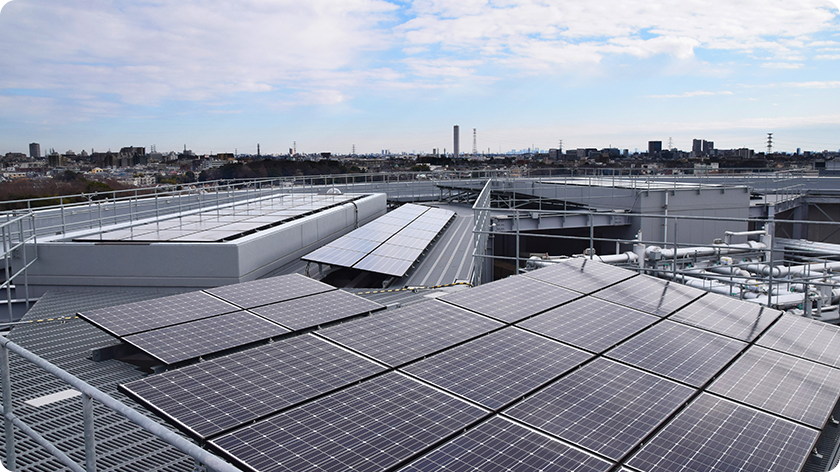
Solar panels at the Yakult Central Institute
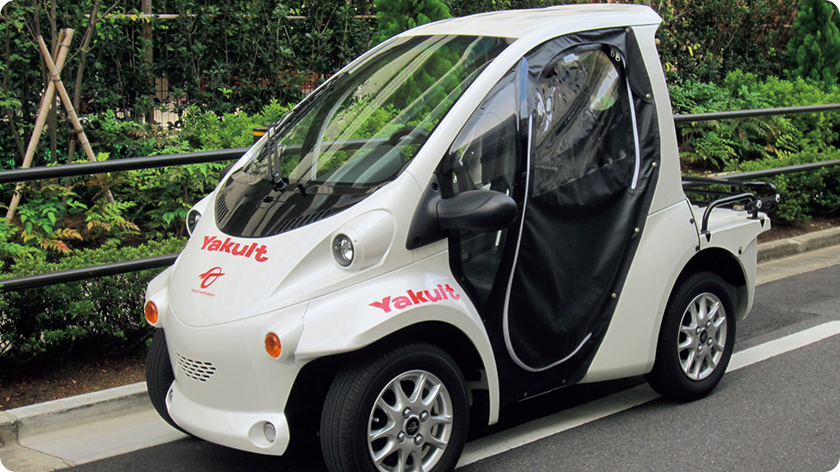
COMS electric vehicles used by Yakult Ladies
Close-up: Switching to renewable energy for electricity used at our 13 domestic plants
As the Yakult Group seeks to achieve net-zero greenhouse gas emissions by 2050, we have switched to renewable energy for all purchased electricity used at our 13 domestic plants. Below, staff in charge discuss their thoughts about these initiatives and their expectations for the future.
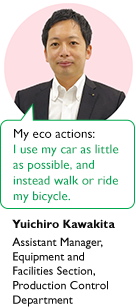
Constant pursuit of innovative solutions
We began this initiative after determining that switching to renewable energy sources for all purchased electricity used in the production process at our plants in Japan would let us greatly reduce greenhouse gas emissions and contribute to global environmental conservation. Renewable energy takes many forms, and choosing an energy company plan that met the Yakult Group’s needs was highly challenging. Through this conversion, we estimated a reduction in emissions of 34,800 t-CO2 per year in total at our 13 domestic plants, roughly a 40% reduction from fiscal 2018 levels.
CO2 emissions from electric power (Scope 2) have been essentially reduced to net-zero thanks to this switch to renewable energy. However, in order to meet the goals of our Environmental Vision, reducing CO2 emissions from the use of fuel sources like city gas (Scope 1) will be essential.
This task will require constant pursuit of innovative solutions.
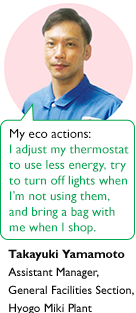
We continue our efforts around energy-saving equipment conversion and energy conservations
Rising interest in environmental challenges is evident at our plants, where we have been receiving proposals from business contacts for some time about converting to renewable energy and increasing clean energy systems such as solar-powered electricity generation, and where visitors on plant tours have increasingly been asking about environmental issues.
We have now completed the switch to renewable energy for purchased electricity across the Company, which has enabled us to achieve true net-zero CO2 emissions for electric power at our domestic plants. However, even if CO2 emissions can be reduced, energy costs will increase, so continuing efforts will be needed at plants to conserve electricity and convert to energy-saving equipment. For that reason, we believe that all workers must heighten their energy awareness even further, and change their patterns of behavior.
International initiatives
As part of our efforts to reduce CO2 emissions, we are also encouraging our plants outside Japan to introduce solar-powered electric generator systems. Currently, our plants in Korea, the Philippines and Brazil are considering installing these systems. Moreover, our Ayutthaya Plant in Thailand has introduced energy-saving air compressors as part of larger efforts to shift to energy-saving equipment at our plants. Our CO2 emissions reduction efforts have expanded beyond the production process to include expanded use of electric trucks in Guangzhou.
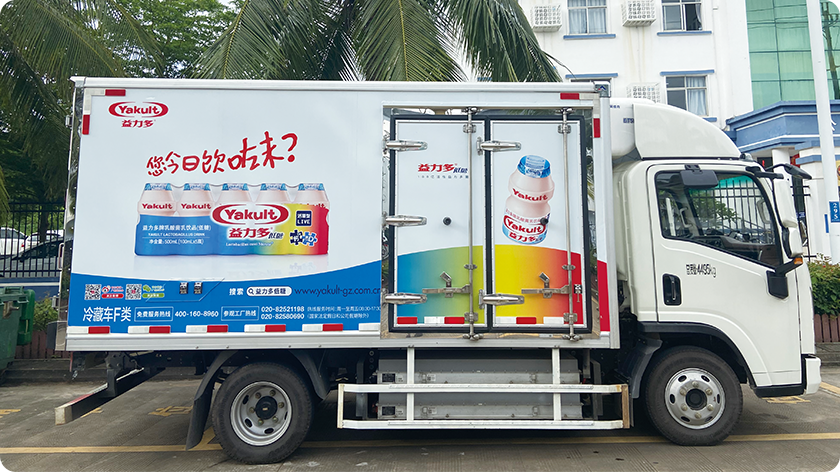
Electric truck (Guangzhou Yakult Co., Ltd.)






